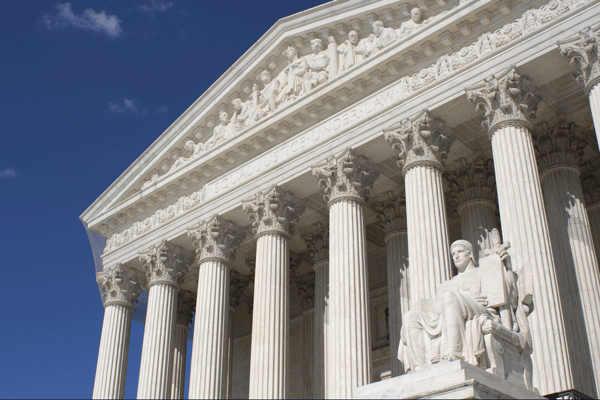
The U.S. Supreme Court has ruled that federal law requires district courts to delay a lawsuit automatically while the parties appeal whether the claim should be taken to arbitration.
The June 23 decision in Coinbase v. Bielski is important to employers and all California businesses because the high court recognized that the benefits of arbitration could be lost altogether if litigation is allowed to proceed before a court determines first whether the case belongs in court at all.
The 5-4 decision said that the Federal Arbitration Act (FAA) requires district courts to automatically stay litigation while the parties appeal whether the claim should instead go to arbitration.
Impacts of Decision
Quoted in a Reuters news article, Katherine Minarik, Coinbase’s vice president for litigation, welcomed the ruling, saying it “recognizes that companies like Coinbase, as well as our customers, bear significant burdens when cases that belong in an arbitration process instead proceed in lengthy and expensive court proceedings.”
Importantly, the June 23 ruling is a blow to proponents of SB 365 (Wiener; D-San Francisco), a bill that proposes to allow litigation to proceed to court even if there is disagreement about whether the case is appropriate for arbitration. Opponents of SB 365, including CalChamber, which has tagged the bill as a Job Killer, strongly believe the ultimate goal of the measure is to severely restrict the use of arbitration agreements.
The ruling in Coinbase underscores growing judicial support for business in defending their right to use arbitration as a cost-effective means to resolve disputes.
On February 15, 2023 the Ninth Circuit Court of Appeals handed employers a victory in Chamber of Commerce of the United States of America, et al. v. Bonta, et al. The Ninth Circuit decision in the case invalidated California’s AB 51 — a bill that attempted to preclude California employers from requiring arbitration agreements as a condition of employment.
No doubt the growing cost of defending litigation over arbitration — and losing — is going to quickly become a fiscal nightmare for the state of California. For example, defending AB 51 in court already has likely cost the state — and taxpayers — hundreds of thousands of dollars.
Background
Abraham Bielski filed a class action lawsuit in federal court against Coinbase, an online cryptocurrency exchange platform, alleging that Coinbase failed to replace funds fraudulently taken from users’ accounts. When a user signs up for Coinbase, they agree to terms and conditions that include an arbitration dispute resolution provision.
In response to the class action lawsuit, Coinbase filed a motion to arbitrate the claims under the arbitration dispute provision. The district court denied the motion, thereby keeping the litigation in the courts. Coinbase asked for a stay of the litigation while they appealed the denial of their motion to arbitrate. The district court and then the Ninth Circuit Court of Appeals declined to stay the litigation.
The question before the U.S. Supreme Court was whether Section 16(a) of the FAA, which allows for an interlocutory appeal of rulings on the arbitrability of a case, required stays of litigation while the question of arbitrability was answered by the appellate courts.
Section 16(a) neither authorizes nor prohibits automatic stays pending this type of appeal. Other circuit courts have held this exact type of appeal would stay the litigation, but the Ninth Circuit differed. Now the U.S. Supreme Court has resolved the split in favor of staying the litigation, saying the common practice of doing so in circuits other than the Ninth reflects common sense.
“If the district court could move forward with pre-trial and trial proceedings while the appeal on arbitrability was ongoing, then many of the asserted benefits of arbitration (efficiency, less expense, less intrusive discovery, and the like) would be irretrievably lost — even if the court of appeals later concluded that the case actually had belonged in arbitration all along,” the U.S. Supreme Court stated.

